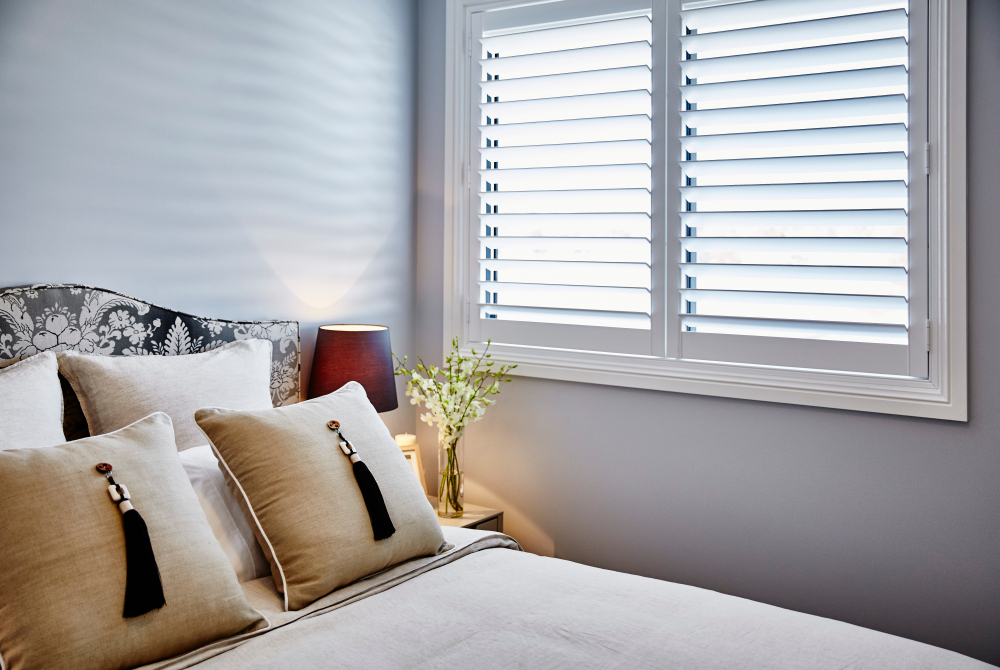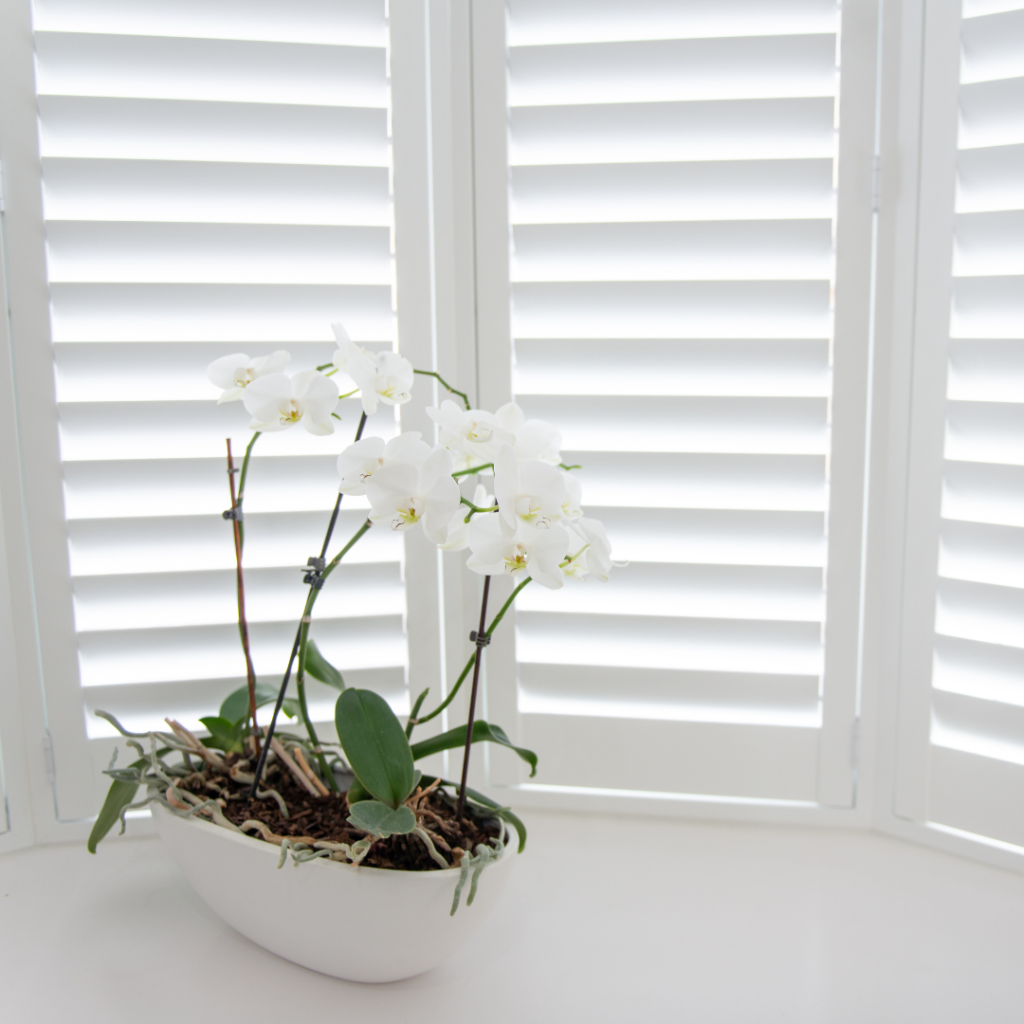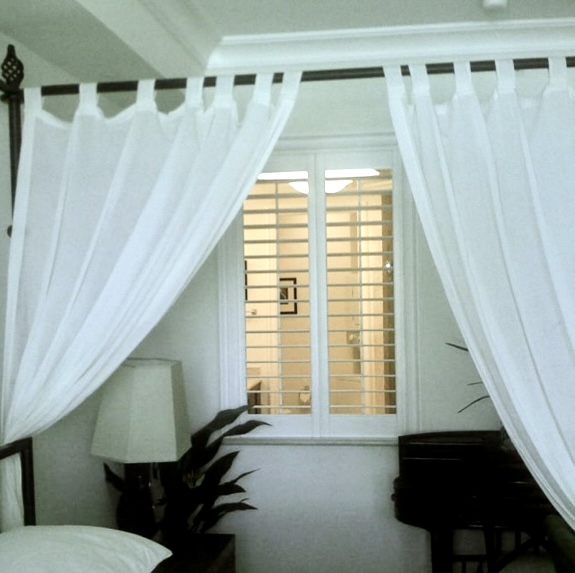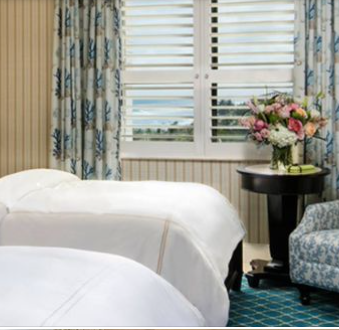Plantation shutters derive their name from the stately homes in the South whose long balconies feature functioning shutters that close to protect the window glass from harsh weather and interior rooms from oppressive heat. They’ve moved inside since those Antebellum days and are now a popular interior window covering that operates in a surprisingly similar way to it’s outdoor cousin. There are a few things to consider if you’re thinking about bringing them into your space, and here’s how to select the best plantation shutters in Stuart.
Louver size and the best plantation shutters
If you’re convinced that plantation shutters are the right window covering for your space, there are few choices you’ll need to make. One of the first ones will be the louver size of the shutter which will completely change the look of the window. The smallest louver size is just over 2 inches and the largest is more than double that and which one is best depends a lot on the size of the window you’re covering. The larger the louver, the more unobstructed the view is outside of the window that it covers.
Consider the upgrades
Plantation shutters are an investment that with a little maintenance will last many years. So, why not go for the gusto when picking some for your home? Little upgrades can go a long way like an invisible tilting rod that further opens up the outside view, remote controlled shutters that open and close on schedule, or with the push of a button, or even locks that prevent the shutters from being open and closed by little kids with no business opening or closing them.
What they’re made of matters too
Another option you’ll have is to select the material from which your plantation shutters are made. Three common materials used to make shutters are polyresin, basswood, and Phoenix wood. Each has their own pros and cons and a knowledgeable shutter dealer can help you navigate which material best suits your needs and budget.
Keeping plantation shutter looking great
One great thing about plantation shutters is how low maintenance they are. The larger the louver, the easier they are to clean which is done as needed with a duster or vacuum extension. Even the toughest dirt or build up only requires a moist cotton cloth and a little bit of elbow grease.





